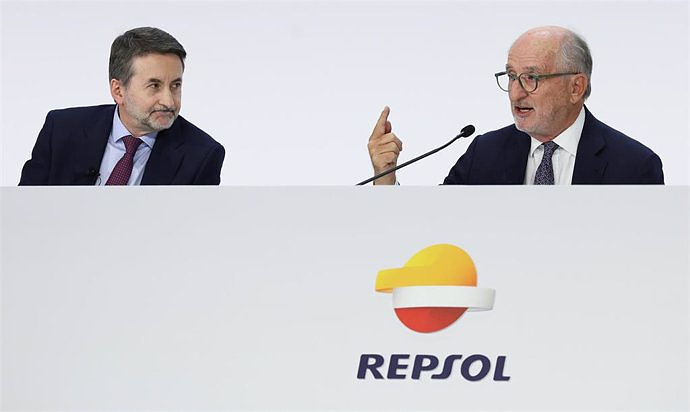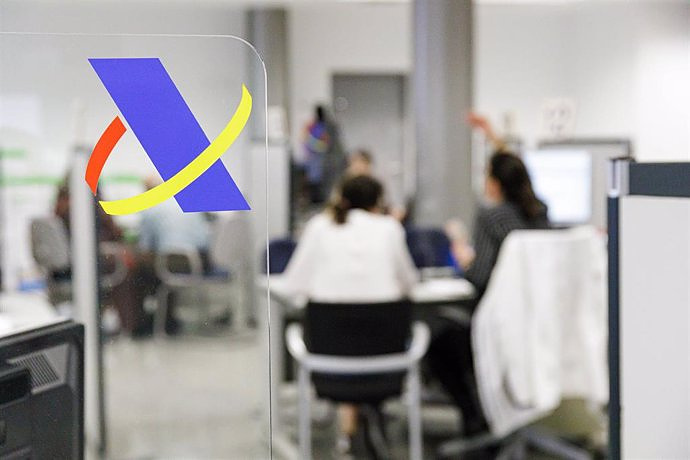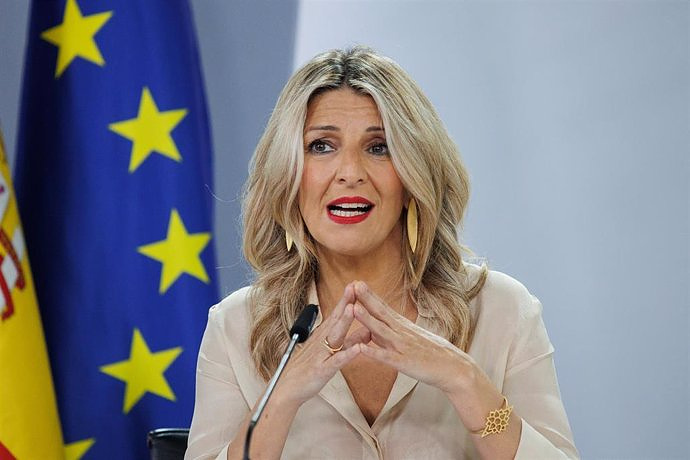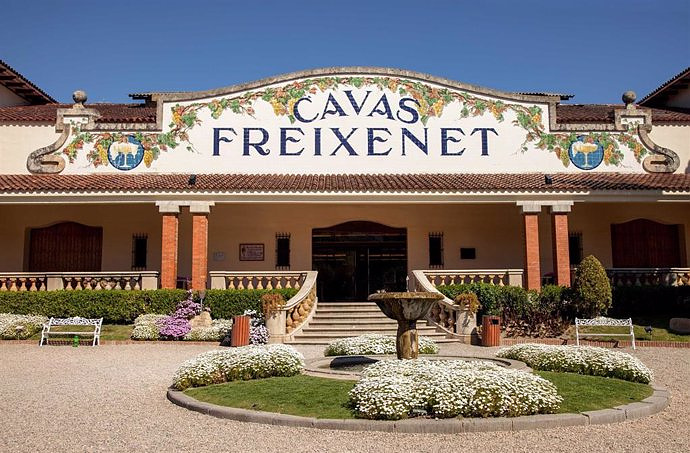The judge tells him that he is not entitled and considers that he makes "instrumental" use of the company for his "exclusive personal benefit"
MADRID, 10 Nov. (EUROPA PRESS) -
The judge of the National Court (AN) that investigates the alleged scam with Arbistar cryptocurrencies, José Luis Calama, has assured that the alleged ringleader, Santiago Fuentes, used the company as a "mere instrument" to commit crimes and has dismissed his attempt to annul the proceedings, denying that the right of defense was violated for not having heard the company as a legal person.
Calama highlights in a car, to which Europa Press has had access, the "obvious lack of legitimacy" of the accused to request on behalf of Arbistar, even if it is its sole administrator, an incident of nullity for alleged violation of the right of defense corresponding to a entity with its own legal personality.
The judge replies that if he considers that the company's rights have been violated, proceed to appoint a lawyer for the company. Otherwise, Calama senses that what the person under investigation intends is "precisely to make a merely instrumental use of the legal entity for the sake of his exclusive personal benefit."
For the instructor and head of the Central Court of Instruction Number 4, the right of defense of Arbistar as a company "remains unharmed", without "any impairment". In addition, he explains that the civil responsible has a different treatment according to the law, since during the investigation phase he is not charged with any crime.
The judge points out that Arbistar is a sole proprietorship company and without an organization differentiated from its sole administrator, who has used it for an alleged continuing crime of fraud, "whose actions have been carried out, directly and personally" by the accused, whose assets is "confused with that of society".
In this case, it is estimated that Arbistar would have swindled 100 million euros and left more than 30,000 injured in the world.
Calama recalls that during the investigation it has adopted certain precautionary measures on the company's assets, such as the seizure of all types of bank accounts, whether cryptocurrencies or other types of currency, up to covering the 50 million euros to pay those affected. if Fuentes ends up being convicted; or that the money from two cars, valued at almost 160,000 euros, seized from Arbistar and auctioned, be deposited in the AN.
Even so, the judge clarifies that these measures are not related to the possible penalties for a legal entity, but rather they were set for eventual civil liability derived from the crimes for which Fuentes is accused, "who uses the company in question as a mere instrument at the service of their criminal ends".
These measures, the order concludes, have been "fully" notified to Fuentes. Therefore, the judge rules out that there was a lack of knowledge that prevented him from appearing on behalf of Arbistar and crosses out that inactivity as "voluntarily exercised".
Calama agreed to the seizure of the money when "appreciating a risk" that Fuentes could allege "insolvency" in the future and "prevent or hinder an eventual conviction" with compensation "could be made effective, being necessary to neutralize that risk the fixing of the bail requested.
According to the accusations, one of them carried out by the Aránguez Abogados office, the Arbistar company began operating during the year 2019, first selling a 'software' that monitored the cryptocurrency market to notify the investor of the best time. to buy or sell, being the user himself who had to do the operation manually from his computer.
Later, the company offered a 'bot' to which were later added successive products linked to the cryptocurrency market that were advertised on YouTube videos and through the website.
The high returns they guaranteed meant that the initial 200 investors multiplied to the point that the national market was too small for them and they turned to foreign investors, especially in Latin America and the Arab world. The pyramid would have reached 22,000 bitcoins, about 800 million euros, but the figure varies at the rate of the value of the cryptocurrency.
To keep the wheel turning, they paid a percentage to investors who brought in new clients, thus establishing a cascading commission system. From there was born the so-called 'million club', a select group made up of 15 or 20 people who each would have earned more than a million euros with those commissions.
The investigating judge of the National Court saw possible crimes of aggravated fraud, criminal organization and continued crime of forgery in commercial documents, as well as money laundering, an offense that Calama has chosen to investigate in a separate piece so as not to hinder the main investigation of the case.

 Exploring Cardano: Inner Workings and Advantages of this Cryptocurrency
Exploring Cardano: Inner Workings and Advantages of this Cryptocurrency Seville.- Economy.- Innova.- STSA inaugurates its new painting and sealing hangar in San Pablo, for 18 million
Seville.- Economy.- Innova.- STSA inaugurates its new painting and sealing hangar in San Pablo, for 18 million Innova.- More than 300 volunteers join the Andalucía Compromiso Digital network in one month to facilitate access to ICT
Innova.- More than 300 volunteers join the Andalucía Compromiso Digital network in one month to facilitate access to ICT Innova.-AMP.- Ayesa acquires 51% of Sadiel, which will create new technological engineering products and expand markets
Innova.-AMP.- Ayesa acquires 51% of Sadiel, which will create new technological engineering products and expand markets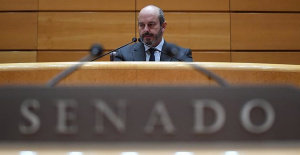 The amnesty faces its final stretch in the Senate with the question of whether it will be voted this week or after the Catalan elections.
The amnesty faces its final stretch in the Senate with the question of whether it will be voted this week or after the Catalan elections. The PP will send to Moncloa the 1,136 letters from citizens with their real problems that it received in Sánchez's reflection
The PP will send to Moncloa the 1,136 letters from citizens with their real problems that it received in Sánchez's reflection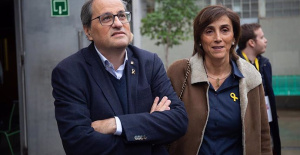 Carola Miró, wife of former president of the Generalitat Quim Torra, dies
Carola Miró, wife of former president of the Generalitat Quim Torra, dies 12M.- Díaz asks Sánchez to recognize the Palestinian State in the next Council of Ministers
12M.- Díaz asks Sánchez to recognize the Palestinian State in the next Council of Ministers How Blockchain in being used to shape the future
How Blockchain in being used to shape the future Not just BTC and ETH: Here Are Some More Interesting Coins Worth Focusing on
Not just BTC and ETH: Here Are Some More Interesting Coins Worth Focusing on A sensor system obtains the fingerprint of essential oils and detects if they have been adulterated
A sensor system obtains the fingerprint of essential oils and detects if they have been adulterated Faraday UPV presents the 'Origin' rocket to exceed 10 km of flight: "It is the beginning of the journey to space"
Faraday UPV presents the 'Origin' rocket to exceed 10 km of flight: "It is the beginning of the journey to space" The Generalitat calls for aid worth 4 million to promote innovation projects in municipalities
The Generalitat calls for aid worth 4 million to promote innovation projects in municipalities UPV students design an app that helps improve the ventilation of homes in the face of high temperatures
UPV students design an app that helps improve the ventilation of homes in the face of high temperatures A million people demonstrate in France against Macron's pension reform
A million people demonstrate in France against Macron's pension reform Russia launches several missiles against "critical infrastructure" in the city of Zaporizhia
Russia launches several missiles against "critical infrastructure" in the city of Zaporizhia A "procession" remembers the dead of the Calabria shipwreck as bodies continue to wash up on the shore
A "procession" remembers the dead of the Calabria shipwreck as bodies continue to wash up on the shore Prison sentences handed down for three prominent Hong Kong pro-democracy activists
Prison sentences handed down for three prominent Hong Kong pro-democracy activists ETH continues to leave trading platforms, Ethereum balance on exchanges lowest in 3 years
ETH continues to leave trading platforms, Ethereum balance on exchanges lowest in 3 years Investors invest $450 million in Consensys, Ethereum incubator now valued at $7 billion
Investors invest $450 million in Consensys, Ethereum incubator now valued at $7 billion Alchemy Integrates Ethereum L2 Product Starknet to Enhance Web3 Scalability at a Price 100x Lower Than L1 Fees
Alchemy Integrates Ethereum L2 Product Starknet to Enhance Web3 Scalability at a Price 100x Lower Than L1 Fees Mining Report: Bitcoin's Electricity Consumption Declines by 25% in Q1 2022
Mining Report: Bitcoin's Electricity Consumption Declines by 25% in Q1 2022 Oil-to-Bitcoin Mining Firm Crusoe Energy Systems Raised $505 Million
Oil-to-Bitcoin Mining Firm Crusoe Energy Systems Raised $505 Million Microbt reveals the latest Bitcoin mining rigs -- Machines produce up to 126 TH/s with custom 5nm chip design
Microbt reveals the latest Bitcoin mining rigs -- Machines produce up to 126 TH/s with custom 5nm chip design Bitcoin's Mining Difficulty Hits a Lifetime High, With More Than 90% of BTC Supply Issued
Bitcoin's Mining Difficulty Hits a Lifetime High, With More Than 90% of BTC Supply Issued The Biggest Movers are Near, EOS, and RUNE during Friday's Selloff
The Biggest Movers are Near, EOS, and RUNE during Friday's Selloff Global Markets Spooked by a Hawkish Fed and Covid, Stocks and Crypto Gain After Musk Buys Twitter
Global Markets Spooked by a Hawkish Fed and Covid, Stocks and Crypto Gain After Musk Buys Twitter Bitso to offset carbon emissions from the Trading Platform's ERC20, ETH, and BTC Transactions
Bitso to offset carbon emissions from the Trading Platform's ERC20, ETH, and BTC Transactions Draftkings Announces 2022 College Hoops NFT Selection for March Madness
Draftkings Announces 2022 College Hoops NFT Selection for March Madness
